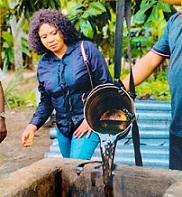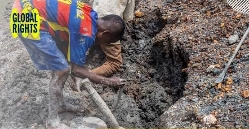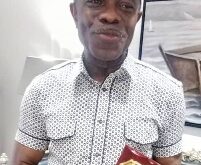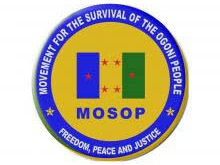By Paul Williams
‘But the water is naught and the ground barren.’ (2 Kings 2:9). ‘O man of God there is death in the pot.’ (2 Kings 4:40)
So was the fate of the Chukwure family in Ibaa Community, Emohua Local Government Area of Rivers State, alongside other families within a 5-kilometer radius, as well as that of students and teachers of the Comprehensive High School, as they sought drinking water from their hand-dug wells.
In their case, however, bitter water did not contaminate the water. It was benzene, Toluene, Ethylene, Xylene and other cancer-prone heavy metals, wrapped up as buckets of crude oil, and drawn from wells that ordinarily should have brought forth clean drinking water.
This, and the frightening statistics of chemists, health and environmental experts, captured at the presentation of the ‘Report of the Environmental and Socio-Economic Assessment in Ibaa Community,’ organized by Kebetkache Women Development and Resource Centre last Friday in Port Harcourt, presented the sorry tale of the poisoning of a community’s underground water by a ruptured crude oil pipeline, reportedly owned by Shell Petroleum Development Company.
Recounting their ordeal last Friday, a member of the Chukwure family, Princewill Chikakpobi Chukwure said, “On the morning of January 15, 2016, my younger ones went to fetch water from a hand-dug well located in my father’s compound. We discovered that what we fetched was a black substance, and when we tried to ignite it with matches, there was gaseous emission from the substance.
“It was based on that that I had to write to Shell (Shell Petroleum Development Company) on the 16th of January, 2016 to inform them. We also copied several stakeholders. We also informed DPR (Department of Petroleum Resources). DPR then arrived, in the company of Shell personnel, and took samples. That was all about it till today. The result of the sample has never been made known to or seen by any of us, as a family or as individuals.
“Several letters were written to Shell. It took them till 2018 to come and put up what they called alternative source of water for us.
“Before this, they were actually accusing the family of sabotage, that we emptied crude oil into the well. But as time went on, Shell and her agents have come to the compound severally with tanks and they have evacuated over 3,000 liters of crude oil. Now, the question is: Where did we source that amount of crude oil from, to have emptied into our well?
“We continue to persist, to try to reach agencies, which include NOSDRA (National Oil Spill Detection and Response Agency), federal Ministry of Environment, but we did not get any reply. It took NOSDRA a long time to invite us to a meeting with Shell, but nothing came out of it.
“If you go to the community now, you will see the presence of Shell and its contractors. Each time they come, they cover my father’s compound. They use their soldiers and cover the entire area, and deny us access to our compound.
“We are being harassed in our own home. Children in our compound begin to fear because of the presence of arms and soldiers. My people fear because of what they know multinationals can do.
“My father, Samuel Uchechukwu Chukwure, died on May 7, 2023 after prolonged health challenges. He had been drinking water from the well before we discovered the black substance. I believe that his death is connected to the consumption of the polluted water,” he said.
According to environmental chemist, Fortune Uchenna, whose company, F&E Global Resources, undertook an Environmental Assessment of Crude Oil Seepage from ‘Manifold 8’ in Ibaa Community, “all the water that were tested in the community are impacted. But only one or two sources meet the permissible standard.
“The World Health Organization (WHO) and Nigeria’s Drinking Water Standard says that there should be not up to 3 mils of hydrocarbon in water. But we have situations in the community where we are having 128 mils and so on. So we see that the concentration of these pollutants in the water exceeds the WHO and Nigeria’s permissible limits, and people are at risk.
“The implication of the report is serious. Now that the report has been presented, the pollution is still right there with the community, they are still drinking from the water. There should be an alternative water source. This is important because the pollutant is spreading fast across the town, because it is believed that the aquafer that has been impacted spreads across the entire Niger Delta,” he said.
A health experts present at the event, Dr Bieye Renner Briggs, however, drew attention to the health implications of the report.
He said: “The report has shown that the total petroleum hydrocarbon and volatile polycyclic levels in Ibaa community are extremely high. That simply means that the people in Ibaa are prone to having cancers, cardiovascular diseases, respiratory illnesses, kidney and liver diseases. If not now, then in nearest future.
“They will begin to come down with those health issues, including having issues with fertility, having congenital or abnormal defects, children will be born with abnormalities in Ibaa communities and adjourning communities. The situation there is an emergency and should be treated as such,” he said.
Henry Eferegbo, executive director, Obelle Concern Citizens, whose group the embattled family later made contact with, recounted that “In 2021, the Chukwure family got across to me. It was then we got to know that eight years ago (2016), there was an oil spill in Ibaa. Shell pipeline rupture had spilled crude into the community’s underground water.
“It was through us that Emem Okon (executive director, Kebetkache) came into the matter. Kebetkache has been fighting for the environment in other communities.
“We wrote to Shell, Shell acknowledged that there was oil spill, and said that the spill had affected over five kilometer radius, and that it did not affect communities. It is only in the bush area.
“So, while the Chukwure family could not drink water, the Egbune family (represented at the event by Sunday Jolly Egbune) could not also drink water.
“Last year (2022), Shell came and closed that well, and the one in Egbune compound, probably because they were highly polluted. They also closed the well in the Comprehensive High School, which is a boarding school. That was when we realized the extent of the problem,” he said.

Executive director of Kebetkache Women Development and Resource Centre, Chief Emem Okon, whose organization provided the platform for the push for environmental justice, in partnership with Both Ends, said that “the very first day the report, which was in its very raw form, was presented to us, it was very scary. What I will advise the community is that it should not been seen as a Chukwure family issue. It is a community issue. A lot of people are affected.
“In fact, it was when they (Shell) sealed off the well in Chukwure’s compound that we knew that a nearby school, a community school, also had the same problem. The children did not talk about it, the teachers did not talk about it, nobody else knew until they (Shell) sealed it up.
“So, it is everybody’s issue. In fact, when we made the attempt with the Multi-Door Court (to get the company to take action), some people in the community started threatening Henry (Eferegbo, of Obelle Concern Citizens) and even Princewill (Chukwure).
“So, there should be unity of purpose within the community, because this report is not to witch-hunt anybody. It is not even to witch-hunt Shell. Rather, it is to address a problem, because people’s lives are at stake,” she said.
Nye-nwe Eli Ibaa and Obelle, HRH Eze Hon. Dr. Wobodo Jonah, who was present at the event with his council of chiefs, said that the report has shown that “that the community has been contaminated already. The effect of the oil has damaged the water and vegetation of the community and will drastically affect the life of the people. That is why we have to call the attention of Shell to take immediate action to save the lives of the people in the community.”
In response to an enquiry by our colleague, Mr Kingsley Vigaage (Wave FM), via email, Shell’s Bola ‘Salt Essien-Nelson said, “Following the outcome of the investigation of the reported 2016 contamination of underground water in Ibaa community in Rivers State, the impacted community water wells were decommissioned and an alternative potable water source has been in place in the community since 2018.
“The Shell Petroleum Development Company of Nigeria Limited (SPDC) (as operator of the SPDC/NNPC/TotalEnergies/NAOC Joint Venture), in collaboration with the Nigerian Oil Spill Detection and Response Agency (NOSDRA), the Nigerian Upstream Petroleum Regulatory Commission (NUPRC), the Rivers State Ministry of Environment, and representatives of the community, is currently executing a full-scale ground water remediation project in the community. This remediation work is expected to be completed by the end of 2023,” the spokesperson added.
 PH Mundial – Port Harcourt Online Newspaper News Across The Region
PH Mundial – Port Harcourt Online Newspaper News Across The Region





